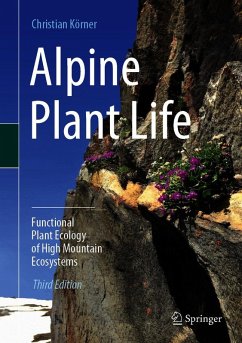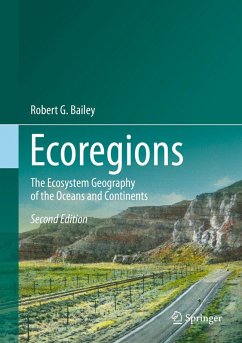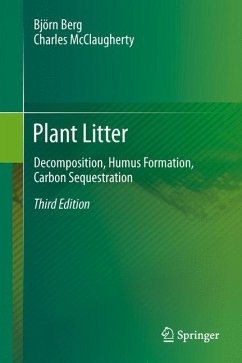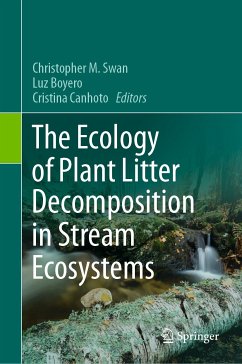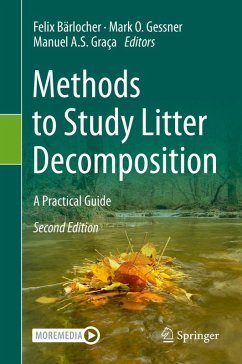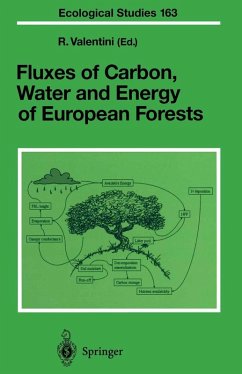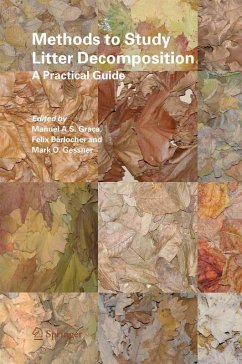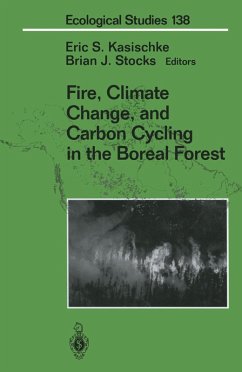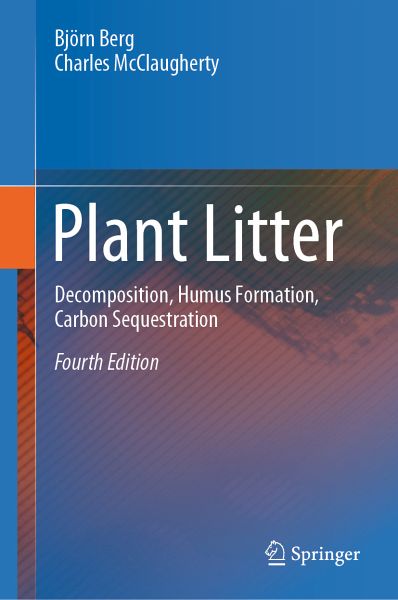
Plant Litter (eBook, PDF)
Decomposition, Humus Formation, Carbon Sequestration
Versandkostenfrei!
Sofort per Download lieferbar
128,95 €
inkl. MwSt.
Weitere Ausgaben:

PAYBACK Punkte
64 °P sammeln!
This book gives basic facts about litter decomposition studies, which are of guidance for scientists who start studies. Since the publication of the third edition, there has been quite a development not only in the field of litter decomposition but also in supporting branches of science, which are important for fruitful work on and understanding of decomposition of plant litter and sequestration of carbon. A consequence is that 'old established truths' are becoming outdated.New knowledge in the fields of phytochemistry and microbial ecology has given a new baseline for discussing the concepts ...
This book gives basic facts about litter decomposition studies, which are of guidance for scientists who start studies. Since the publication of the third edition, there has been quite a development not only in the field of litter decomposition but also in supporting branches of science, which are important for fruitful work on and understanding of decomposition of plant litter and sequestration of carbon. A consequence is that 'old established truths' are becoming outdated.
New knowledge in the fields of phytochemistry and microbial ecology has given a new baseline for discussing the concepts 'litter decomposition' and 'carbon sequestration'. We can also see a rich literature on litter decomposition studies using roots and wood as substrates. These have given new insights in factors that regulate the decomposition rate and as regards roots their contribution to sequestered carbon in humus. Additional facts on the role of temperature vs the litters' chemical compositionmay in part change our view on effects of climate change.
Further information on applications of the new analytical technique (13C-NMR) for determining organic-chemical compounds has allowed us to develop these parts.
Focus is laid on needle litter of Scots pine as a model substrate as this species has been considerably more studied than other litter species. Also the boreal/northern temperate coniferous forest has in part been given this role. Still, new information may allow us to develop information about litter from further tree species.
New knowledge in the fields of phytochemistry and microbial ecology has given a new baseline for discussing the concepts 'litter decomposition' and 'carbon sequestration'. We can also see a rich literature on litter decomposition studies using roots and wood as substrates. These have given new insights in factors that regulate the decomposition rate and as regards roots their contribution to sequestered carbon in humus. Additional facts on the role of temperature vs the litters' chemical compositionmay in part change our view on effects of climate change.
Further information on applications of the new analytical technique (13C-NMR) for determining organic-chemical compounds has allowed us to develop these parts.
Focus is laid on needle litter of Scots pine as a model substrate as this species has been considerably more studied than other litter species. Also the boreal/northern temperate coniferous forest has in part been given this role. Still, new information may allow us to develop information about litter from further tree species.
Dieser Download kann aus rechtlichen Gründen nur mit Rechnungsadresse in A, B, BG, CY, CZ, D, DK, EW, E, FIN, F, GR, HR, H, IRL, I, LT, L, LR, M, NL, PL, P, R, S, SLO, SK ausgeliefert werden.





